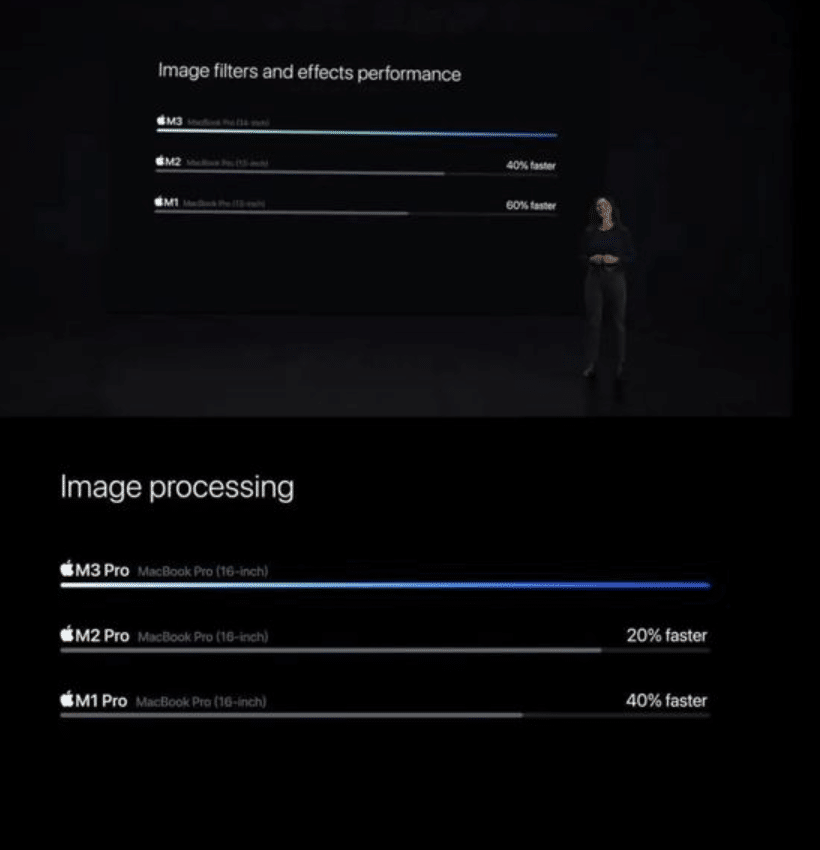Apple has unveiled a trio of new hardware products featuring the all-new M3, M3 Pro, and M3 Max chips. These products include the new 24-inch iMac and the updated 14/16-inch MacBook Pro. According to Apple’s official information, the M3 series chips are built using TSMC’s cutting-edge 3-nanometer manufacturing process. They incorporate a new graphics processor architecture, support dynamic cache technology, and utilize hardware-accelerated ray tracing technology, resulting in a significant boost in performance.
M3 MacBook Pro Offers Up to 60% Performance

Apple claims that the MacBook Pro equipped with the M3 chip achieves up to a 60% performance improvement over the M1 version, while the M3 Pro-powered MacBook Pro offers a maximum speed increase of 40% compared to the M1 Pro, and the M3 Max-equipped MacBook Pro’s rendering speed is 2.5 times faster than the M1 Max, with a maximum CPU performance increase of 80%!
Now, let’s take a look at how the M3 series chips perform in real-world benchmarks. Currently, the popular benchmarking website Geekbench 6 provides scores for Apple’s M3 series chips. Thanks to the upgraded 3nm process and an additional 5 billion transistors, the base M3 chip achieves a single-core score of 3076 points and a multi-core score of 11863 points, leading the previous generation M2 chip by around 17% in both single-core and multi-core performance.
M3 Max Outperforms M2 Ultra in Single-Core Performance
As for the M3 Max, it achieves a maximum single-core score of 3151 points and a maximum multi-core score of 21084. Compared to the previous flagship M2 Ultra chip, it still outperforms it in single-core performance but lags slightly in multi-core performance. When compared to flagship chips from Intel and AMD, the M3 chip can hold its own in single-core performance against AMD’s Ryzen 9 7950X and Intel’s Core i9-13900K. However, in multi-core performance, even the M3 Max falls behind. Against Qualcomm’s latest Snapdragon X Elite desktop processor, the M3 chip offers around 10% and 3% higher single-core performance than the 23W and 80W versions, respectively.
However, according to user @jimmyjamesuk123, in the Azet Ruins (Normal Tier, Offscreen) test, the Apple M3 chip achieves 324FPS, which is approximately 10% higher than Qualcomm’s Snapdragon X Elite processor in the 23W TDP version (294 FPS) but about 9% lower than the 80W TDP version (356FPS). It’s only around 9% higher than the previous-generation M2 chip (295FPS).
Read Also: Apple Claims Three Safari Browsers, Despite EU Ruling